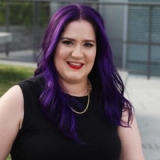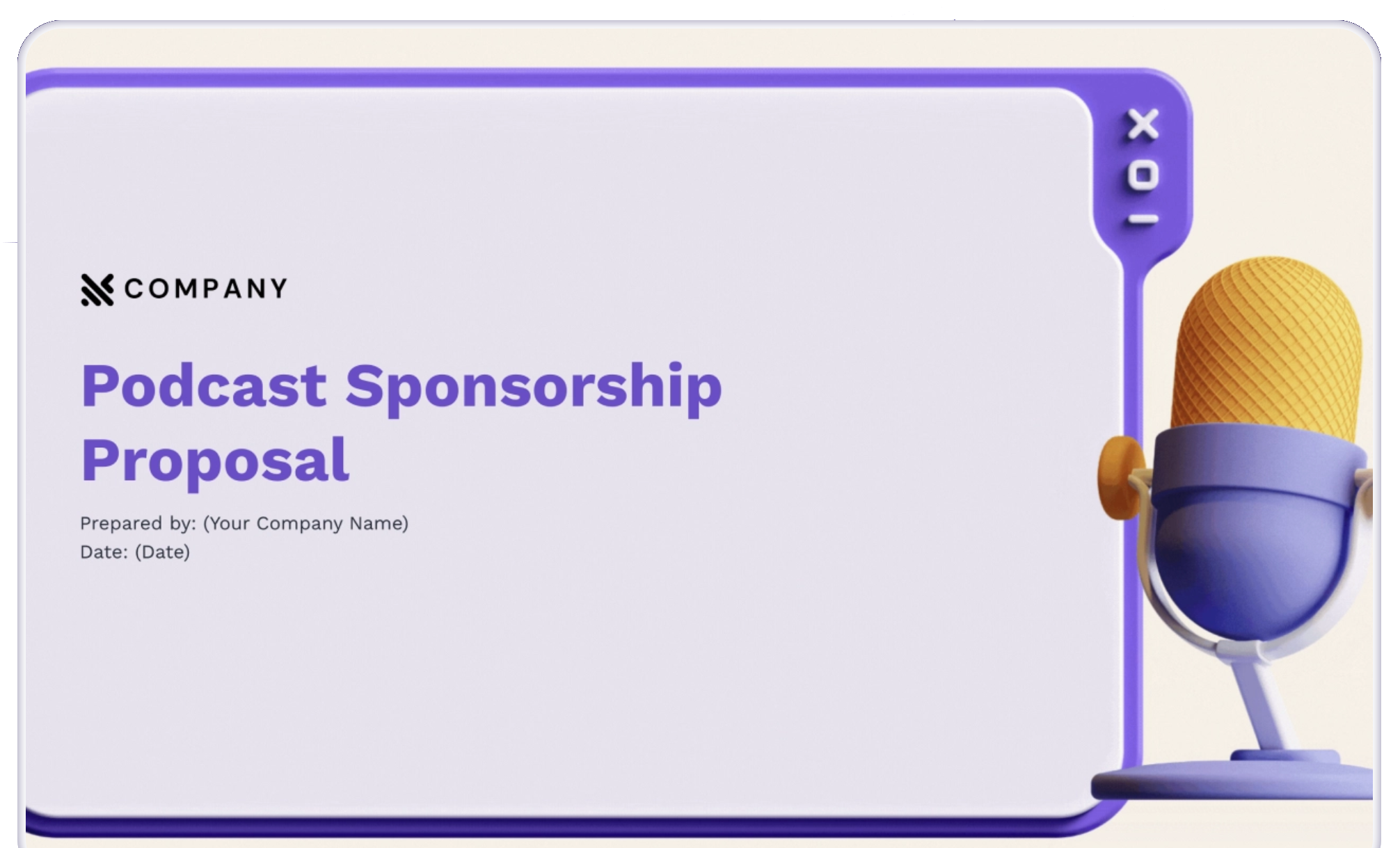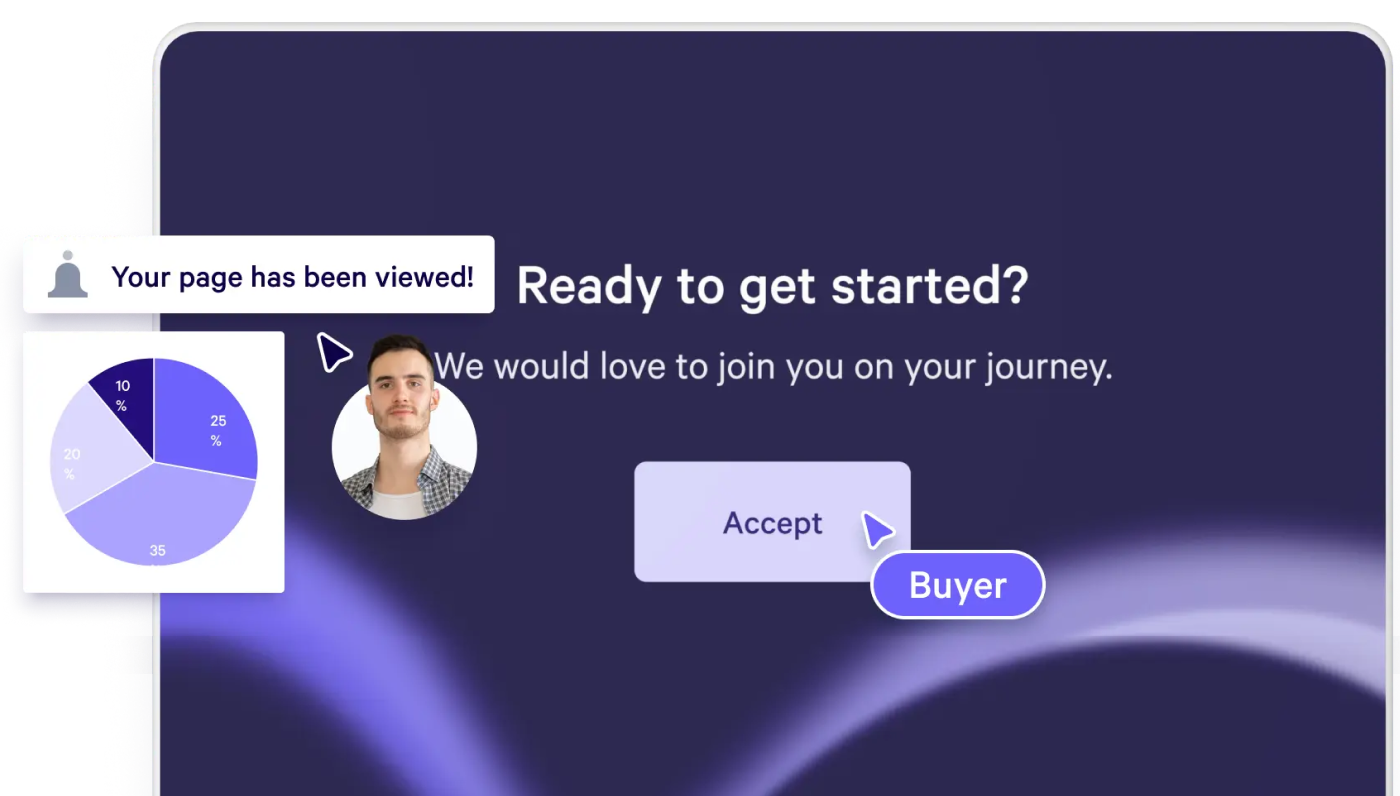
If you are ready to monetize and attract sponsors to the benefits of your podcast, chances are (unless you’re Joe Rogan!), you’ll have to get yourself out there and ask.
But for a content creator, the journey from drafting a proposal to securing a sponsor can be full of guesswork. How do you show your value in a way that resonates with potential sponsors? How can you stand out from the many others trying to do the same?
We'll show you how to write a podcast sponsorship proposal that speaks to what your potential sponsors are looking for. We know every podcast is different, and this guide ensures your proposal reflects the uniqueness (pretty sure that’s a word…) of your podcast and proposition.
Key takeaways:
- Podcast sponsorship proposals communicate the benefits of sponsoring your podcast to potential sponsors.
- Understanding your audience and showcasing your reach and influence are crucial in attracting sponsors.
- Highlighting the benefits for the sponsor and outlining available sponsorship opportunities can make your proposal more appealing.
- Offering customization options and outlining pricing and packages can cater to the specific needs of potential sponsors.
- A clear call to action and a professional, friendly tone can enhance the effectiveness of your proposal.
What is a podcast sponsorship proposal?
A podcast sponsorship proposal is the way you communicate with potential sponsors about the benefits of sponsoring your podcast. You can use it to show the sponsors what your podcast is about and why they should support it. You describe its content and tone, its audience, and the data you've collected about your engagement, as well as your proposed sponsorship opportunities.
It’s your chance to show the heart of your podcast – the topics you cover, the conversations you spark, and the community of listeners you’ve gathered around you.
To see a good example, check out Qwilr's easy-to-follow podcast sponsorship proposal template.
Steps to write a podcast sponsorship proposal: Key elements to include
Compelling a business to sponsor your podcast can be a mutually beneficial situation. This is because 65% of regular podcast listeners have purchased something after hearing about it on their favorite podcast. A conversion rate that other mediums would kill for, and it is attributed to the ways hosts take the time to curate sponsors that add genuine value to their listeners.
After you identify potential sponsors that align with your brand and best serve your listeners, it is time to craft your pitch. These are the steps you want to follow when writing your sales proposal and the key points you need to include:
1. Understand and articulate your podcast's value proposition
This is about knowing (and showing) what makes your podcast special and why sponsors should choose it. The 'value proposition' means what makes your show different and engaging. The big question to answer here is: Why do people listen to your podcast, and why should a sponsor choose to partner with you?
Start by thinking about your content.
What topics do you use to grab people's attention? Maybe you have a unique way of telling stories or a fresh angle on popular subjects. This should be more than just a list of facts. You're creating a vivid picture of an active and engaged community that sponsors would love to join.
2. Define your audience
Understanding your audience is crucial and is about more than just basic details- gender, age, etc. It's about getting to know them – their pleasures and what they need.
And then there's the way your audience interacts with your podcast. Are they leaving reviews, writing emails, or chatting with you on social media? This kind of engagement shows how much they care about your content, and that's something sponsors love to see.
It's essential to show the value of your audience - to you and a sponsor. By defining your audience, you demonstrate that you are not simply reaching people through your podcast but instead reaching the right people.
3. Showcase your reach and influence
Here, we focus on showing potential sponsors your podcast's true strength. This is where you show how far your podcast's voice reaches and how much it connects with your audience.
Let's start with reach. Indicate how many people listen to your podcast, how many downloads your podcast accumulates, and how high your growth is. If your listenership has increased, that's a great story to tell. It shows that your podcast is growing and reaching more and more people over time.
The next point is influence, which is how listeners interact with your podcast. Do they engage after listening? Maybe they participate in discussions, share your episodes, or respond to your calls to action. This shows that your podcast is moving people to action.
Use graphs or pictures to show your audience data in a more visually exciting format. Include quotes from your listeners to bring the numbers to life. You want to show potential sponsors that your podcast is more than just a channel – it's a dynamic platform with a growing, engaged audience.
4. Explain the benefits for the sponsor
This is where you highlight what's in it for them.
Sponsoring your podcast can be a great way for a brand to reach an engaged and trusting audience. Your listeners trust your words, and by partnering with a sponsor, they can share that trust, creating a positive connection between the sponsor's brand and the listener.
Podcasts often attract specific groups of people (“the riches are in the niches”) so sponsors can directly reach their target audience more easily. Explain how sponsoring your podcast gives them a special opportunity to connect closely with a well-defined group of listeners.
Make sure you present these benefits in your offer in a way that aligns with the sponsor's goals. If you can, back up your points with examples or data. For instance, if you've helped a sponsor get more attention or sales in the past, share that success story.
5. Outline the available sponsorship opportunities
This part of your proposal is about clearly and creatively presenting the options you offer the prospective sponsor to collaborate with your podcast.
You can explain the usual sponsorship formats, such as pre-roll, mid-roll, and post-roll ads, for potential sponsors who may not be acquainted with them. You could describe how these ads work in your podcast regarding their style and length.
But don't just stick to the usual ad formats. Get creative! Think about incorporating sponsors into special episodes or segments. Maybe a mini-series on a topic that aligns with your sponsor's brand.
Don't forget to mention how you can use social media or email lists. If you are active on platforms such as Instagram or X (Twitter), explain how you can leverage your social channels or your newsletter if you have one to benefit your potential sponsor, too. You may also offer your sponsors the opportunity to provide personalized email content to be sent directly to your subscribers.
6. Include customization options
Customization means recognizing that every sponsor is different. Each has its own goals, its audience, and its brand approach. Your job is to show in your proposal that you understand this. Offer different ways they can engage with your podcast, tailored to their individual needs.
For instance, if a sponsor is interested in featuring their product, discuss how to incorporate it into your content naturally. If the sponsor is more interested in telling their brand story, you can create a particular segment for them.
Collaboration is important. Invite sponsors to share their ideas and goals with you. Let them know you’re open to discussion and brainstorming to find the best way to integrate their brand into your podcast.
7. Outline pricing and packages
When you set out your prices and say what each package includes, ensure they're easy to understand. You're not trying to hide anything but show potential sponsors exactly what they can expect for their money.
Define different sponsorship levels or packages, each clearly describing what is included. For example, a basic package could consist of pre-roll advertising in every episode, while a more expensive package could include mid-roll advertising, mentions on your social media, and a special segment just for them.
Your pricing model is important. Look at what others in the podcast with audiences of a similar size in your industry or niche are charging. Flexibility in your pricing and packages is vital, so mention that you're open to talking about different options to meet your prospects needs and budgets.
Also, reiterate what the sponsors will gain from investing in your podcast. Besides asking them for their money, you're also offering them the opportunity to connect with your audience. Explain how your podcast is a unique way for them to spread their message.
8. Add a call to action
Whichever sales methodology you're using, your call to action (CTA) should be direct and tell sponsors what to do next. For example, you could say, "To discuss this exciting opportunity, please contact us at [your contact information]." This direct approach shows that you're serious and ready to keep things moving.
The tone of your CTA is also vital. It should be friendly and professional, just like the rest of your offer. You're inviting potential sponsors into a partnership, not pushing them.
Make sure your CTA is timely and full of potential. Phrases like "Join us on this exciting journey" or "Get in touch to make the most of this unique opportunity" can create a sense of urgency and excitement.
Example of a podcast sponsorship proposal template
Ready to create a podcast sponsorship proposal that stands out? Check out Qwilr's easy-to-follow podcast sponsorship proposal template. It's a great starting point for podcasters. It saves you time, is easily customizable, and looks fantastic (if we say so ourselves…), helping you stand out from the standard five-page-long emailed proposals!
Here is what the podcast sponsorship template includes:
- Introduction: Start by introducing your podcast. Explain what it's about and what's special about your podcast. This is your chance to attract attention and let the personality of your podcast shine through.
- Understanding Your Needs: In this section, you must demonstrate that you seek a mutually beneficial partnership. Describe how your podcast aligns with their brand and how it can assist them in achieving their objectives.
- Your Priorities: Talk about how your podcast can help meet the sponsor's specific needs. Whether they want to reach a particular audience or strengthen their brand, show how your podcast fits them.
- What Success Looks Like: Describe what a successful partnership should look like. This could be about increasing the sponsor's visibility or helping them to achieve specific marketing goals (for this use case, you can use our podcast marketing proposal template.)
- Our Approach: Explain how you will incorporate their sponsorship into your podcast. This could include commercials, content collaboration, or other strategies you've come up with for a good partnership.
- Our Services: Explain your services, such as advertising space, episode shout-outs, sponsored content, or social media promotions. Make it clear what the individual services entail and show the diversity of your offer.
- Our Achievements: Talk about the successes of your podcast, audience statistics, and past sponsorships that went well. This creates trust and shows the value you have for them.
- Our Team: Introduce your team members. This personal touch creates a connection and shows the passion and expertise behind your podcast.
- Investment Required: Be upfront about your rates. Lay out your different pricing options and clearly state what each package includes. The main point is to make the value of the investment clear.
- CTA (Call to Action): Encourage potential sponsors to get in touch. Whether setting up a meeting or filling out a form, make it easy and attractive for them to take the next step.
- Conclusion: End your offer on a high note. Reaffirm the benefits of partnering with your podcast and express your excitement for what lies ahead.Let them feed off your positive energy for the collaboration.
Proposal templates make the sales process faster and more effective. Alternatively, you can use Qwilr's AI proposal generator to create a professionally designed proposal in minutes.
Final thoughts
When creating a podcast sponsorship proposal, keep it simple but impactful. Meet potential sponsors at eye level and offer them straightforward solutions to their marketing needs. Maintain an optimistic tone and exude confidence without over-egging the proposal.
Keeping all these points- and the elements above- in mind will stand you in great stead, giving you a real edge in your outreach efforts.
And why not save yourself more time and give your proposal a sleek, professional sheen by starting with Qwilr's podcast sponsorship proposal template?
About the author

Marissa Taffer|Founder & President of M. Taffer Consulting
Marissa Taffer is the Founder & President of M. Taffer Consulting. She brings over 15 years of sales and marketing experience across various industries to a broad range of clients.
Frequently asked questions
The ideal format for a podcast sponsorship proposal is a carefully organized document that includes critical sections such as introduction, sponsor needs, success criteria, your approach, services offered, and pricing. It should take a straightforward approach while reflecting your podcast's unique personality and value to potential sponsors.
Following up with potential sponsors after sending your proposal is a crucial step in the process. It's best to follow up with a friendly and professional email or phone call to see if they've had a chance to review your proposal. Polite, never pushy. Express your enthusiasm and explain how your podcast can add value to their brand.




